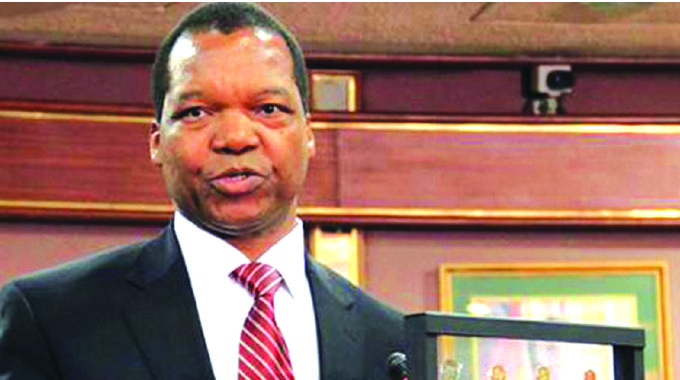Why SMEs in Zimbabwe fail

Benard Gwarada Correspondent
When a business fails, this does not adversely affect the owner only, but such failure also negatively affects the Government which has an inherent interest in employment creation and poverty reduction.
The Government is also responsible for creating a conducive macro environment for SMEs to sprout and thrive.
Some scholars have pointed out that most SMEs which fail tend to blame Government policies as opposed to factors to do with the shortcomings of the owner.
Researchers have identified a number of common factors that act as obstacles to the success of SMEs such as lack of planning, insufficient capital, competition and mismanagement of tax affairs.
However, Zimbabwe is a country with its own dynamics and therefore this article will dwell on the following seven factors that reflect the current peculiarities of the socio-economic and political environment.
Lack of entrepreneurial
mindset
Some Zimbabwean SMEs have folded because of a conscious or subconscious preference to conduct business in a comfort zone. However, without some degree of risk taking, no business can develop and let alone flourish.
On the other hand, an entrepreneurial mindset is able to propel the entrepreneur forward even in a situation of very limited resources and adversity.
The “hand-outs” mentality leads to the constant blaming of institutions such as banks and the Government for not providing the required financial assistance.
Self-made billionaires Bill Gates and Oprah Winfrey are famous failures who refused to give up. They have proved that risk taking can yield great rewards.
Managerial incompetence
As an SME grows, it is not possible for the owner to be a jack of all trades. Expertise in areas such as people management, planning, financial management and marketing is required for the effective running of SMEs.
In a number of cases, owners of SMEs may fail to adjust to the demands that are triggered by the growth of their organisations, resulting in the owner of the SME continuing to operate in roles where he or she lacks specialist skills or knowledge.
Without such knowledge and skills, the SME is likely to encounter obstacles in its operations that could have been easily avoided and this becomes a hurdle to the success of the SME.
It should however, be noted that, even where the SME is at its initial stages of development, it is incumbent upon the owner of the SME to take steps to improve his or her skills levels.
When this is not done, the SME is likely to be run in a haphazard manner, leading to failure sooner than later.
Lack of industry experience
and knowledge
The owner of a SME must take time to understand the industry in which he or she is operating.
The entrepreneur must be able to answer the following questions;
what is the core business of the industry,
Who are the players in the industry?
What are the characteristics of the players in the industry?
What are the opportunities available in the industry? and
What are the challenges and how may these challenges be overcome?
When such fundamental questions are not asked and honest answers given, then the SME is doomed to fail.
There is a tendency in Zimbabwe where a “herd mentality” is apparently in operation. This is whereby almost without thinking, someone rushes to open a business in a given area because this appears to be fashionable at that time.
A case in point is the breeding of quail birds (zvihuta) which hit a crescendo in 2015, but fizzled out when it turned out not to be a profitable venture.
Similarly, some people without a mining background have poured their hard-earned savings into artisanal mining ventures and have come out with nothing.
Poor control systems
SMEs that do not have control systems in place are likely to fold because they do not have control over the organisation’s operations.
The areas of concern include the control of company assets, the control of financial resources, the control of information resources and the control of human capital.
For instance, in the transport industry, some companies failed to scale greater heights because they had no full control over the whereabouts of their vehicles. However, digitised tracking system has assisted in mitigating this challenge.
With good control systems in place, goals are clearly set and performance standards are easily visible and enforceable.
Some people have tried to conduct farming while they are based away from the farm, and usually in towns. This leads to a situation where the owner of the farming enterprise has little or no control over what happens at the farm.
Some SMEs have failed because they extended too much credit to customers who then failed to pay back.
Self-discipline is another key pillar in entrepreneurial success.
Some SME owners are in the habit of “taking from the till” either for themselves or for some relatives. Some even abuse facilities from banks, resulting in massive loan defaults. Such practices lead to the collapse of the business sooner or later.
“Tenderpreneurship”
There are SMEs that rely on tenders for them to continue to exist. In essence, these are briefcase SMEs.
The problem with these SMEs is that their death is inbuilt in their practices in the sense that tenders at some point may run dry.
Most of these companies skip the important stages in the business lifecycle as they jump straight into the maturity stage and this is not sustainable. Such SMEs do not have any production that they create as they gallivant from one tender to another in virtually all spheres of economic activity. When the tenders are no longer available, such SMEs are likely to close shop.
Failure to exploit digital technology
Some SMEs have failed to make use of digital technology and its attendant benefits.
There are some transactions that can be done through digitised platforms and do not require the physical presence of someone at a particular place.
However, some SME owners have been slow in embracing such technology.
The owner is used to the traditional way of conducting business that requires his or her physical presence at a particular geographical place.
SMEs are failing to take advantage of the time which is a precious commodity that can be made available to them when they utilise digital platforms to conduct business.
Such time can be used by the owners of SMEs (for example at Mupedzanhamo or Glen View Area 8 complex) to attend to some other pressing issues instead of spending time in queues at banks or any other place.
In this way, the SMEs can greatly minimise chances of failure and improve chances of success.
Economic policies
While it is important and even necessary for the Government to announce its polices from time to time, this has in some cases negatively affected operations of SMEs leading to some closing shop because of their inability to adjust to the new prevailing economic regime (market distortions) and the cost implications thereof.
For example, on February 20, 2019, the Government liberalised the trade of foreign currency and declared the RTGS dollar as the local currency.
Another case in point is the Supreme Court of Zimbabwe’s landmark judgment involving Zambezi Gas Zimbabwe (Pvt) Ltd and NR Barber (Pvt) Ltd on January 20, 2020, which declared that all foreign currency debts incurred before February 22, 2019, are to be paid in RTGS at the rate of 1:1.
In conclusion, it can be seen that there are a number of factors that can lead to the failure of SMEs.
While government clearly has a role to play in the success or failure of SMEs, there are also other factors that are largely within the control of SMEs in terms of determining the success or failure of these types of organisations.
Bernard Gwarada is a research candidate in International Business at University of Pretoria’s GIBS Business School. He writes in his own capacity.
Feedback: [email protected]









Comments